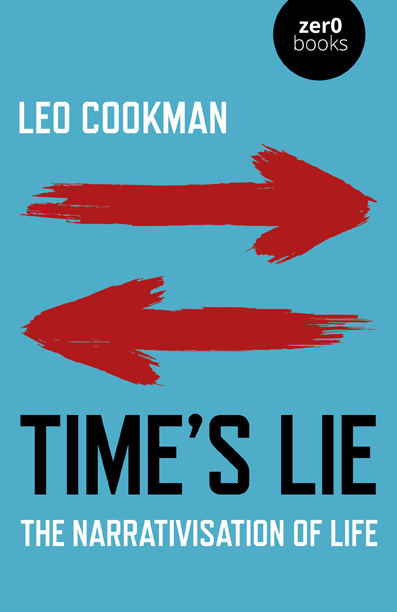Time's Lie
Time's Lie helps decode how news and media have changed drastically since 2016 and examines the polarisation of the Left, the Right and the fight to control the Narrative.

Time's Lie helps decode how news and media have changed drastically since 2016 and examines the polarisation of the Left, the Right and the fight to control the Narrative.
Time's Lie helps decode how news and media have changed drastically since 2016 and examines the polarisation of the Left, the Right and the fight to control the Narrative.
Cultural & social, Language, Political economy
Why are facts and statistics disparaged and dismissed, now more than ever? Why do people trust 'fake news'? If we have 'had enough of experts' who should we listen to? Rather than the possible collapse of modern society, could this be an opportunity to look at not just society but our own lives in a different way? Whoever controls the narrative is the one who is in control.
Time’s Lie analyses the history, the science and the philosophy behind the creation of linear stories, or Narrativisation, as this book dubs it.
'The importance of understanding how we frame the world through story cannot be overstated. Leo has tapped into something really profound with Time's Lie.' Jared Bauer, Wisecrack
Click on the circles below to see more reviews
Key among the multiple functions of narrative in our lives, Cookman says — literary narrative is not his prime concern, it should be pointed out — are the organisation of reality so as to make it comprehensible, the construction of identity, contextualisation of ourselves in society, a way of relating to others, and a mode of catharsis. With acuity and enthusiasm, he reminds us how profoundly important narrative is to our existence. We tell stories to entertain, inform, educate, to control, understand, heal, clarify and unify: ‘Narrative is at the very core of our being … we are just stories we tell each other, but it is in the telling, the presentation, of these stories that they become reality, it is where they take on their meaning.’ Certainly, it’s the manner as well as the matter. Although the term ‘post-truth’ does not appear in the book, Cookman’s point is that truth is dependent upon narrative — the particular narrative one chooses to accept. Indeed, he states (in italics for emphasis): ‘All narratives are only true to you.’ Presumably with the ‘objective’ standards of consensus and consistency that he promotes, undisputable truth — if that’s not a contradiction in terms –is ‘hard to come by’. Hasn’t it always been? This doesn’t mean truth doesn’t matter, Cookman assures us, or that there’s no point in trying to discover the truth. He does seem to believe there is such a thing as objective or absolute truth, albeit elusive. But it still means that, generally speaking, truth is relative: what is true for one person is not true for another — the ‘true for me’ syndrome is surprisingly popular when one realises the implications (not least for narrative) of something being merely true for me. Perhaps ‘Truth’s Lie’, admittedly oxymoronic, would be an alternative title for Cookman’s book, although time and point of view, as referred to above as they affect narration, are necessarily of concern to him. Product of human invention In many ways, ‘time is the base layer of narrative for the way we tell our bigger, broader stories’. But the ‘lie of time’ is that it’s simply part of the fabric of the universe and can’t be disputed: ‘Time and all its effects is just as much a product of human invention as it is a product of entropy.’ We create time, says Cookman, by witnessing entropy, the change, or process, from order to disorder, or randomness, in a system — the conflict between vitality and entropy makes for a powerful but tragic metaphor, one recalls, in the fiction, for example, of Norman Mailer, William Burroughs and Thomas Pynchon. Perception controls the flow of time, as does concentration, Cookman points out. He intuits the intentionality of consciousness when he says ‘an event that is given a huge level of meaning is given a great deal of focus and thus time is perceived to slow down’ (his italics): the greater the intentionality, the greater the meaning. And it’s the question of meaningfulness in life that made Cookman want to write about narrativisation in the first place. Despite being secular, he has always believed that things happen for a reason because ‘whether discussing luck, chance, fortune, coincidence or synchronicity they are all a method for creating meaning out of random, entropic interactions’. (His italics). And this is surely the crux of the issue, or of the narrative, this narrative. We are meaning-seeking creatures, after all, whether through pattern, sign or symbol. ~ Geoff Ward/Medium .com
The importance of understanding how we frame the world through story cannot be overstated. Leo has tapped into something really profound with 'Time's Lie'. ~ Jared Bauer, Wisecrack
Discussions of literature, storytelling and writing often fail to address the political and social implications of those processes themselves. In this refreshing intervention, Cookman gives a writer's perspective on all manner of narratives, from the bedtime story and the lie to the news narrative and the apparently narrative-less scientific claim. His compelling rumination, both personal and philosophical, considers the role of storytelling in constructing identity, philosophy and pretty much everything else. ~ Alfie Bown, author of Enjoying It: Candy Crush and Capitalism